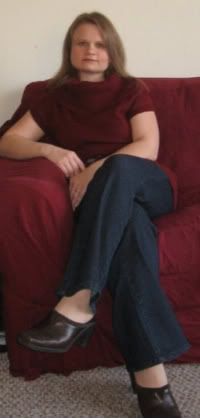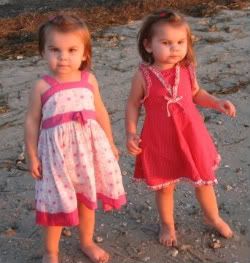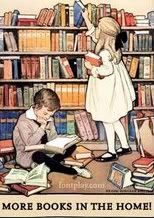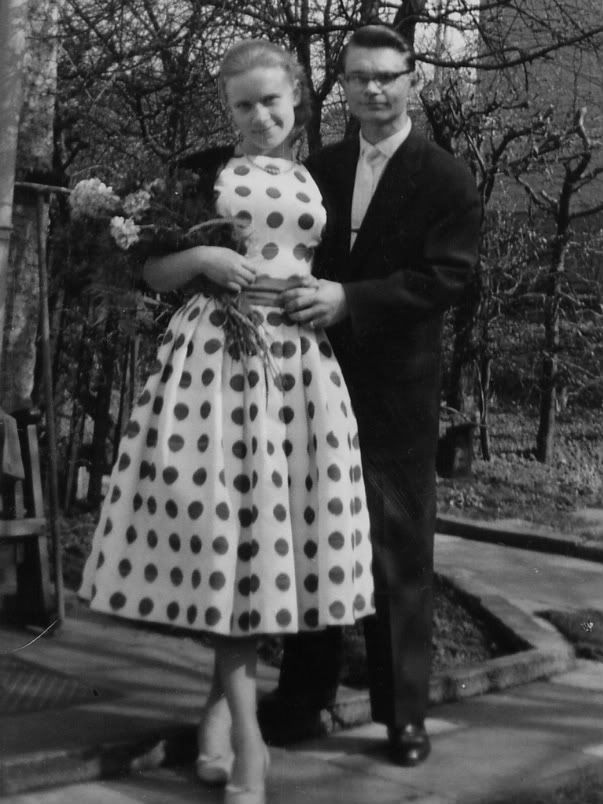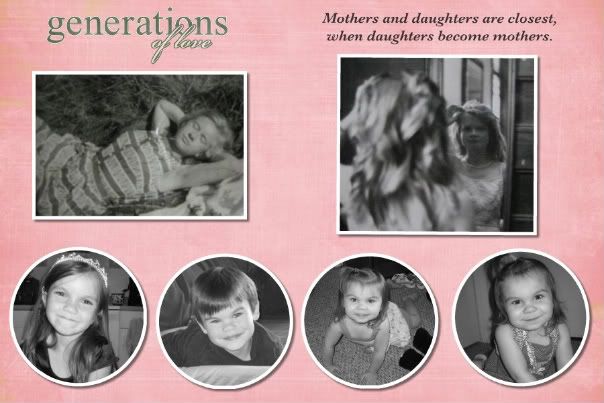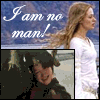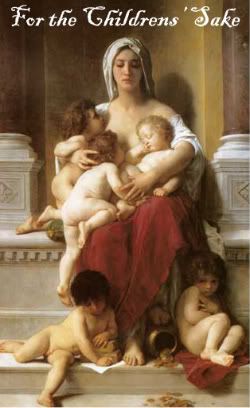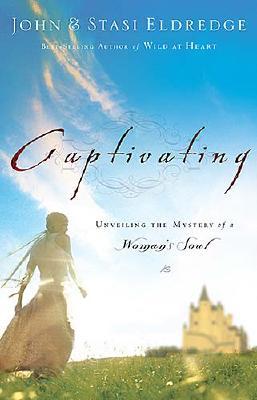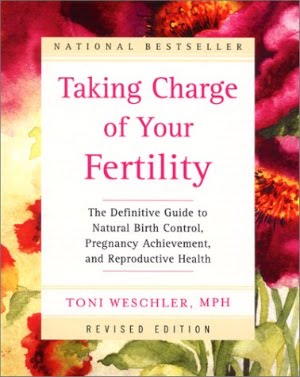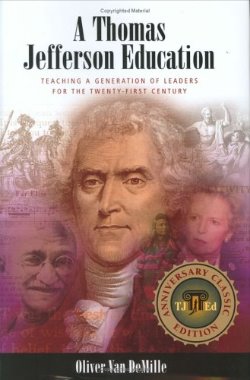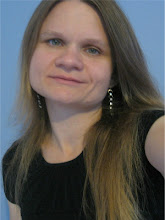Saturday, September 5, 2009
Audrey Assad Firefly
Wait--I'm alone, sitting on this rooftop,
looking down at the town
below.
Stop, You caught me by surprise;
strange how Your glory can be seen
in a firefly.
Oh, the night is drawing near;
I dream about You as the
lightning storm appears;
and the more I know of You,
the more it's clear
that...
I never know, I never know what You are going to say
I could never
know, I could never know a Mystery that way.
You're pulsing like a steady
heartbeat,
rising like a flame towards the sky
You, You cut the
night.
What's this? This is something new;
there is a deeper beauty in this
quiet side of You.
God, You're soft, soft to the touch
as I run my fingers
through these fields that I love so much...
You are an evening song and I'm
desperately in love,
but...
I never know, I never know what You are going
to say;
I could never know, I could never know a Mystery that way.
Pulsing
like a steady heartbeat, rising like a flame toward the sky,
You, You cut the
night.
I try to catch You like a falling star,
but what kind of God could I
contain in my jar?
Oh, I feel You moving, moving through this land,
and I
kiss the traces of Your unseen hand.
Pulsing like a steady
heartbeat,
rising like a flame toward the sky,
You, You cut the
night...
flickering and luminescent,
moving through the universe, You're
like
You are like a firefly
You are like a firefly
You cut the night.
Posted by Esther Ruth at 4:32 PM 0 comments
Monday, August 31, 2009
The Wife as the Keeper/Master of Her Home
The Bible speaks a bit about a woman’s role in her home. Do the terms homemaker and housekeeper paint pictures of a woman cleaning all day in your mind? Are these scriptures even really about housework?
The admonition for women regarding their homes in Titus 2:5 has been translated as “to be busy at home”, “workers at home”, and “to be homemakers”, among other things. Most often, though, it is translated as “to be keepers at home.” That term comes closest to the real meaning of a woman’s significant role in her home, but it falls short of important insights unless we study it further. A keeper of the home is not a cleaner of the home.
The Greek word translated “keepers of the home” is oikouros. It is a compound word deriving from oikos (house, household, family) and ouros (a guard, guardian, a watcher, a warden). So this word carries the meaning of watching the house, such as a watchdog. This meaning is confirmed in Proverbs 31:27 which says, “she watches over the ways of her household.” (NKJ) Other translations read: “she carefully watches all that goes on in her household” (NLT), “she keeps an eye on everyone in her household” (MES), and “she keeps a close eye on the conduct of her family.” The Hebrew word here for “watch” is tsaphah, which means “to look about, spy, keep watch, observe, watch closely.”
It is interesting to note other ways this Hebrew word is used in the Old Testament. In 2 Samuel 18:24-27 it refers to the watchman, guarding the city! The same usage occurs in 2 Kings 9:17-20, where a watchman was standing on the tower in Jezreel, spying the surrounding area to protect the city. Isaiah 21:6 says, “Set a watchman, let him declare what he sees” and 52:8 reads, “Thy watchmen shall lift up the voice”. These scriptures (and there are more) speak of watchmen guarding a city; a woman’s role in her home is to be a watchwoman guarding her family!
Ezekial 33:6 proclaims, “If the watchman see the sword come, and blow not the trumpet, and the people be not warned…” When a woman watches her family, deeper issues are involved than were the case for the watchmen guarding cities. A woman does not only watch closely with her physical eye, but even more with her internal eye: her intuition. God has gifted women with an inner eye that often alerts them to danger. In Dr. Frank Seekin’s book, “Hebrew Word Pictures”, he shared how the the word “ezer” (helper, the word describing woman in Genesis) is composed of two word pictures in ancient Hebrew: an eye, and a picture of someone with a hatchet representing ‘the enemy’. A literal interpretation means ‘one who sees the enemy’ . Indeed, it was Eve who identified the enemy after the Fall. Adam blamed God and Eve for his sin. Eve, on the other hand, just stated the fact that the serpent deceived her. She identified Satan has the real enemy! Women have a certain inner eye with which to watch the ways of their household.
Genesis 3:24 says that God placed Cherubims at the east of the garden of Eden to “keep” the way of the tree of life. The Hebrew word for keep here is shamar and it means “to guard, keep, watch, protect, observe, have charge of.” Notice the similarities? In fact, shamar was also used to describe the man’s calling when he was put in the garden to “keep” it (Genesis 2:15). Men and women both were created to keep/watch/guard the world which we were given dominion of. A woman is no more commanded to clean and care for a home than a man is commanded to become a gardener! That is not what “keep” in “keeper at home” is about. It is about carefully guarding whatever God puts in your charge. It is about ruling the earth, fighting the enemy, and overcoming evil as the warriors we were meant to be. Men and women are to keep the world alongside one another. Women are usually the ones primarily keeping their homes and families though, as God has given them particular relational and cultivating abilities that especially aid them in their roles as watchwomen.
Men and women image the God who made them when they keep. 1 Peter 1:5 reassures believers that they are “kept” by the power of God (KJV). Here the Greek word phroureo is used, meaning “to protect by guarding”. Furthermore, Proverbs 15:3 says that “the eyes of the Lord are in every place, beholding the evil and the good.” The Hebrew word here for “beholding” is the same used in the description of the woman who “watches” over the ways of her household. God is also a keeper. His eyes are in every place, and a woman’s eyes are to be on everyone in her household. That is the meaning of keeper at home! As we can see, it is not about cleaning and housework. The daily work of living is human work, not woman’s work. Of course, if her husband is working away from home every day while she is at home with children, much of the housework will become her responsibility, but this is not because she is a woman whom God has commanded to clean her house. How the human work of daily living is divided between husbands and wives depends on their individual schedules and other responsibilities.
Women, guard your homes and protect your families! God has given you particular gifts that enable you to be the watchwomen He has called you to be. (See the page “Women Warriors” for more about these feminine gifts)
In the Bible a woman is not just told to be the Keeper of her home, but also the Master of her home. Does this surprise you? Doesn’t the Bible say that a husband is the head of his home? Well, no, actually it doesn’t. In Ephesians 5, it says that he is the head of his wife, not his home. And the meaning for “head” is not master or ruler, but most likely “source”. This topic is discussed in another article regarding the meaning of “head”.
Yet for now let’s stay with the issue of heads of homes. The only place anyone is implied to be the head of the house in the New Testament speaks of a woman’s role: 1 Timothy 5:14 says that women should “oikodespoteo” the house. The King James translates this “guide the house” but the NIV gets closer when it says “manage the house.” Yet, the most accurate translations are those of the ASV, ERV, WEY and WEB which read “rule the household”. The meaning of oikodespoteo is “to be master (or head) of a house, to rule a household, manage family affairs.” It is the verb form of the noun oikodespotes, which is often translated as “master of the house” in the NT, such as in Luke 13:25- “When once the Master of the house has risen up and shut the door…” Also, notice the English word “despot” is in oikdespoteo. Look up “despot” in our dictionary and you will find a similar definition to this one: “a ruler with absolute power and authority”. Wow. That word is used by Paul to describe a woman in her home! Remember “oikos” is the home/family, “despot” is the ruler. The “eo” or “es” at the end just determines if we are speaking of a verb or noun. But it is evident that a woman’s role is to be the “ruler” of her “home/family”.
So if anyone would be given final authority over household matters, it is evidently the woman. That said, I believe men and women were created to rule together, in everything, including their homes. 1 Timothy 3 speaks of husbands ruling their houses also, although the word for “rule” is not the same as the one used regarding women. Here we find proistemi, which means “to set or place over, to superintend, to be a protector, to give aid, to care for.” Though two different Greek words are used, I think it is clear that husbands and wives are supposed to rule their homes together; the husband may, however, see his home to be especially his wife’s “domain” if she is involved more in it and better gifted to care for it. What is clear, though, is that the husband is not the final authority in the home. The Bible never says such a thing, and as lovers of truth it would do us well to not add to what God has written.
Both men and women are to be keepers, and both men and women are to rule. We are in this battle together, yet God often gives us different areas in which to keep and rule. The home is more often a woman’s area because God has gifted many a woman with unique relational and cultivating abilities. This does not mean, however, that the human work of housework cannot be shared (and I am not saying 50/50; I am not speaking of equality but fairness). It does mean that a woman’s role in her home as its’ keeper and ruler is a dignified and indispensable role which involves guarding, watching, protecting and having dominion over. This is what we were created for.
Posted by Esther Ruth at 11:50 AM 0 comments
Friday, August 28, 2009
Sunday, August 23, 2009
Fight Like a Woman

She had slipped onto the battlefield disguised as a man, but in a moment the revelation of her womanhood would be known. In response to Eowyn's threat against him, the leader of her enemy's army boasted of an ancient prophesy that no living man can hinder him. It was then that Eowyn removed her helmet, allowing her long golden hair to fall free as she declared, "No living man am I! You look upon a woman." She won her victory against her enemy fighting as a woman.
Are there battles on earth that women are especially gifted to fight? We can discover much by going back to her beginnings - the creation of Eve - and through insight into some attributes that woman and God share, which reveal how she was made in the image of God, as a female.
At the dawn of creation, God said that Adam needed a helper. This part Eve had to play was not one of inferiority, such as an assistant. The Hebrew word for helper is "ezer" and it is a word that is used in the Old Testament mainly to illustrate God's help to us! Yes, God is also called a helper! And surely God is not inferior. Yet before we jump to conclusions that women are superior based on this title, it is clear that we are helpers equal to men based on the next Hebrew word, "kenegdo". Therefore, why do women share the name of helper with their God? The essence of our role lies in the kind of help we bring. Every time "ezer" is used, it is done within the context of fighting; surrounded by words such as sword, enemies, shield, strength, and delivery, or in the context of military allies. Clearly, "ezer" is a warring word.
Man and woman were both told in Eden to rule the earth. So the kind of help women bring to the world is in taking dominion of it, and fighting battles that need to be fought alongside the men. We are vitally needed. Indispensable. But does that mean we will fight just as men do all the time? God could have created Adam and Steve if femininity was not needed in this world. But He created Adam and Eve because she was the missing puzzle piece to complete the picture of creation. God is a spirit and has both masculine and feminine attributes. He needs His daughters to shine forth their natural femininity. If they do not, a profound side of God's character will be missing on earth. The puzzle would be incomplete.
Women warriors, take off your masks and let your hair fall free. Put on your high heels and get ready to crush the devil under your feet! (Romans 16:20) Let's look at a few ways in which women are often naturally gifted to fight:
1) Protect Relationships.
It is a scientific and psychological fact that for most women, relationships are the priority. It is even evident in the books and magazines we read and the conversations we have. In fact, many women define themselves in terms of their relationships. Is this a weakness in women? Why are we so interdependent? We may understand our nature better as we think about our beginnings. Why was woman made? Because it was not good for man to be alone. We were created to fill a relational need. Furthermore, not only was the first woman made for another human, but she was made from a human. Eve was God's only creation not formed out of the ground, His only creation made from something living! Women are also the ones to whom God has entrusted the privilege of a human growing inside of her. Unlike Adam, who lived on earth as the only human for a time, Eve was never alone. Immediately upon her creation, she was brought to the man to be loved by him. Like God, she only knew life in a relationship.
Like God you ask? Indeed.
In the Godhead is the Father, the Son and the Holy Spirit. They have always had a relationship with each other. The interdependence women live in is a picture of the Trinity on earth. We are relational to our core, and this is not a weakness. Rather, it is a way we image our Maker in our femininity. Our desire for relationships not only illustrate the Trinity but also reflects God's heart of longing for nothing more than to have a relationship with each of us.
I love how John and Stasi Eldredge described woman as "God's relational specialist given to the world to keep relationship a priority." In their book, Captivating, they wrote, "Women are needed to protect relationships...You might at times feel like the only one who cares. But as women we must hang onto this - that because of the Trinity, relationship is the most important thing in the universe...Your place in the world as God's heart for relationship is vital. You have been sent by the Trinity on behalf of love, of relationships. Fight for them." (p.209)
As God's relational specialists in this world, let us fight for and protect our relationships, whether with a spouse, parent, child, sibling, friend, etc. Sent by the Trinity, female warriors are needed on earth to win the battle against broken relationships. How will you fight this battle?
2) Be a Life-Giver.
The first woman was named Eve. Do you know what Eve means? Life.
Women, in general, are natural nurturers. Many of us are gifted in the areas of care, nourishment and promoting growth. Someone once said that the body makes visible what is invisible to the eye. Look at the way our bodies were made to nurture a baby for nine months and then nourish it up to maturity. This is a visible illustration of the invisible attributes of our souls. We give life and growth. God is the ultimate Life-Giver. In the Bible, He has described Himself as carrying us in His womb, crying like a woman in labor, giving birth and nourishing us as a mother does the babe on her breast. In fact, one of God's names - El Shaddai - is derived from the Hebrew word for breast (shad). We are admonished to be as newborn babes, desiring the pure milk of the Word that we may grow thereby. (1 Peter 2:2) According to John 1:1, the "Word" is God. As we read His words in the Bible, we are nourished to maturity by the pure milk from El Shaddai. Before God feeds us this way, though, He gives us birth. When we believe that Jesus is the Christ, we have the right to become children of God, thereby being born again, "born of God". (John 1:13, 1 John 5:1)
As women carry, birth and nurse a child, we are pictures on earth of how God cares for all His children. But a woman does not have to be a mother for her life-giving, feminine soul to be manifested. Many women naturally reveal this attribute of God in their care and nurture of all the people around them. We want to feed, comfort, warm, and promote the growth of others. This is giving life.
Allow your natural desire to bring life to those around you to shine. Walk on earth as a warrior for life! In the Lion, the Witch and the Wardrobe, Lucy was given a bottle of medicine to fight with. Her role on the battlefield was to give a few drops from this bottle to anyone hurt, and it would restore them. Lucy was not sure if this weapon was enough; she thought perhaps that she was brave enough to fight as the boys would. Yet it was her unique weapon that saved so many lives. How can we use our weapon, our feminine souls, to create a culture of life? We can fight against all the depression and death around us by bringing life through the words we speak, the looks we give, the way we touch others, the way we care for, comfort, encourage, and love them.
Women warriors also need to rise up in our culture to save literal lives, the lives of those most helpless and innocent. It does not matter if you label yourself as pro-choice or pro-life. What will make an even greater impact than debating these positions is putting your life-giving heart into actions that help women to choose life. Please visit these sites for ways you can help fight for life: Care Net, The Nurturing Network, and Feminists for Life.
3) Offer Your Vulnerability
"Eve's original material was more vulnerable than man's: she was made out of living cells", so says Jonalyn Grace Fincher in her book Ruby Slippers. Most of us will admit that both our bodies and our souls as women are more vulnerable than those of men. We experience greater physical and emotional vulnerability. What does it mean to be more emotionally vulnerable? Do you only see one side of the coin when considering your vulnerability? Does it remind you of how easily you may be hurt, how tender your heart is? In 1 Peter 3:7, God admonishes husbands to dwell with their wives in an understanding way, giving honor to their wives as the weaker vessel. Hey now! I am not weaker you may say. I'm a strong, self-sufficient, modern woman. Well, consider this: 1 Corinthians 1:25 says that the weakness of God is stronger than men. 2 Corinthians 13:4 reminds us again that Jesus was crucified through weakness. This word - weak - connects God and woman. Yet we know that God is not weak! Some Bible scholars believe this word would be better translated as "vulnerable".
Proverbs 25:15 says that "a soft tongue breaks the bone". The word for soft here means tender, gentle, delicate, weak. Speaking words that are tender and gentle, and speaking with a soft tone, can indeed break bones! Our vulnerable souls are tender; though this may mean we wound easier it also means we have a power that is released as we offer our vulnerability to others. This is what Jesus did: He chose to be vulnerable, knowing the power of extending such open love to others. The vulnerability of God is stronger than men. As Janet Davis wrote in her book, The Feminine Soul, "Jesus chose the vulnerability we as women so often run from...We harden tender parts of our hearts, assuming this is our only defense against more pain. Though we seldom realize it, much is lost in that moment of self-protection. Far from a liability, our feminine vulnerability is a real relational asset. It makes us easier to trust, easier to approach, and easier to connect with...choosing to live in the reality of our vulnerability is...a matter of feminine integrity." (p. 162)
If we harden our hearts in order to feel safe and in control, we are forfeiting a powerful part of our femininity. Our natural hearts are tender, and building a wall around them results in us losing touch with unique attributes of our feminine souls. We must do as Jesus did and risk any pain we may experience, knowing that God's arms are always open to heal us. In risking, we change lives and we change the world. Risking is fighting. Fighting the tendency to harden our vulnerable hearts. As the Eldredges said in Captivating, "A woman who is full of...soft vulnerability is a powerful, lovely woman...Offering a tender vulnerability can only be done by an incredibly strong woman, a woman...who knows Whose she is and therefore knows who she is."
Vulnerable women are Godlike. Our enemy loves it when we build walls around our hearts so we must fight against him. Don't allow him victory over your hearts, daughters of God. Stay tender. Stay soft. Bring any pain to God to be healed, and then go back onto the "battlefield" with the powerful vulnerability God has put within your feminine soul.
4) Make the World More Beautiful
Adam was created and then put into the garden, whereas Eve was formed in the midst of paradise, and awoke to see beauty all around her. Women often long to bring beauty to the world and are naturally gifted to do so. Whether it is through decorating a home, cultivating her own physical beauty, growing a garden, or creating beautiful things, God's daughters often have an affinity toward beauty-making. When women add beauty to this world, they are imaging the God who created this majestic universe.
One day Jesus' friend, Mary, came to him, broke her alabaster box and poured all the perfume on Jesus' head and feet. She got down and wiped his feet with her long, flowing hair. Imagine the scene of adoration and tenderness. The fragrance of the perfume filled the room. Jesus spoke and said that Mary had done a beautiful thing to him. Mary was not the only woman who had lavished love upon Jesus is this way though. There was another woman, who "had lived a sinful life", that also brought her alabaster box and poured the perfume on his feet. She wept, wetting Jesus' feet with her tears, wiping them with her hair and kissing them. How much more beautiful a picture can be painted?
My children have a book called Mrs. Rumphius. The lady in this story asks herself what she can do to make the world more beautiful. Have you ever asked yourself this question?
Beauty is essential to life. As was written in Captivating, nature is primarily beautiful, not primarily functional. Why is beauty so important? They wrote that it speaks to us, tells us that all is well. It comforts us, inspires us, and nourishes us. "A woman's breast is among the loveliest of all God's works, and it is with her breast that she nourishes a baby- a stunning picture of the way in which beauty itself nourishes us." (John Eldredge)
Where there is desolation and despair, we are warriors of beauty. The more beauty we add to the earth, the more others are comforted, inspired and nourished. What can you do to make the world more beautiful?
5) Listen to Your Intuition
Adam and Eve sinned, and so God came to them questioning their disobedience. Though Adam was standing next to Eve when the devil spoke his deceptive words to her, Adam blamed God and Eve herself for his sinful choice: "The woman You put here with me, she gave me some fruit from the tree and I ate it." Eve, on the other hand, admitted the plain truth: "The serpent deceived me, and I ate." The New Testament confirms twice that Eve was deceived by the devil, so when she said these words to God, she was not trying to put the blame on the serpent, but rather just stating the facts. She did not say to God, "the serpent that You, God, put in this garden" or "Hey, wait a second. Why is Adam blaming me, he chose to eat!" No, Eve simply identified who the real enemy was. It was not God. It was not her partner in ruling the earth. No, the enemy was the devil. Eve was the one who had the inner eyes to see this truth. Could this have been the first recorded occurrence of woman's intuition?
Wisdom in the Bible is personified as a woman. Lady wisdom of proverbs calls out and wants to teach us. This is in the OT, and in the NT, the Greek word for wisdom is again feminine: Sophia. It appears, therefore, that wisdom may be another feminine attribute of God. In fact, Jesus Himself was said to be wisdom. (Luke 7:35; 1 Corinthians 1:24, 30)
Could the connection of wisdom and women be understood in the amazing ability of inner knowledge that many women have called woman's intuition? Could this be a special feminine form of wisdom, this inner knowing?
When I was pregnant with my twins, I had a strong feeling that something was not right. I did some research and "diagnosed" myself with what may have been my problem. My intuition was strongly telling me that I needed a sonogram. I spoke to a doctor, shared with him my symptoms and my concerns of what they may be a sign of, only to get laughed at. But I persisted, and a few days after my sonogram (which was performed two weeks early) I was traveling across to another state to a special hospital that offered fetal laser surgeries. It turned out that I was correct in my "diagnosis" and had we waited another two weeks for my original scheduled sonogram, both of my babies could have been dead. I believe that the Holy Spirit can reveal things of this nature to both men and women, but the truth is that women often have a natural gifting in this area of inner wisdom to begin with.
I am not saying our intuition is always correct, but it often is, and so we should pay attention to it. The above example is only one of the ways my intuition proved correct. Daughters of God, listen to your inner wisdom. Don't be afraid of it, don't allow others to ever make you feel condemned for it. You need to fight for it by admitting that it is God's gift to you, and giving it the attention God meant you to heed to it.
6) Extend Mercy and Compassion
Adam said of Eve, "she shall be called woman". Did you ever look at that word? Womb man. A female is a man with a womb:) One Hebrew word used in the Bible for a woman's womb is "racham". There is something very interesting about this word, for it is yet another that connects woman to her God. "Racham" is also a word used to speak of God's compassion and tender mercy toward us! What is the connection between compassion and mercy and a womb? Well, many studies have proven that females have greater sensitivity and empathy toward others. One radical feminist called this tendency in women a "compassion disease"! Praise God it is not a disease, but an amazing gift to many women that reflects God's heart to us! Go out into the battlefield of this world, women warriors, and fight for mercy by extending it to those in need:)
7) Pursue Your Calling
"Confused religions encourage woman to be stripped of all sense of self and worth and lose their identity again in the man...It is not good for the woman to remain hidden within the image of the man", so says Lisa Bevere in her book Nurture. The earth needed a feminine voice, so God created Eve out of Adam's side. God took her out of the man for a reason. As women, we prioritize relationships, and that is what we were created to do, but in our fallen state it can turn into us being dependent on others when we should ultimately be getting our identity from God. Adam had no part in making Eve; he was sleeping. A man does not decide who we are. No one does but God. When He formed us in our mother's womb, He planted within us gifts, passions and callings that would have nothing to do with being a wife and mother. Listen to me: these roles are powerful ones, but they are NOT our highest calling as women. Our highest calling is to be a disciple of Jesus (Christian means Christ follower) and walk the path God has called us on. Women are not born to be wives and mothers any more than men are born to be husbands and fathers. In general, they are often more gifted in caring for a family because of their relational and nurturing qualities, but this does not mean such gifts are the only ones God has given them.
Fight for your calling. God told both Adam and Eve to rule the earth and to multiply. Man was not told to rule the earth and woman to multiply. Both aspects of life- work and family- were meant to be shared by men and women. Now, I am not saying that God's daughters should not be stay at home mothers; I am one. What I am saying is that there is work for us to do besides caring for children and a home. It may be paid work, it may be church ministry, it may be volunteering, etc. Right now my "work" is writing a book. I use any free time I have pursuing this goal.
We are to support our husbands and take an interest in their life, but their calling is not necessarily ours. Do not lose your identity inside of a man again. You are no longer hidden in the image of man; God brought Eve out. Many women tend to fear thinking about themselves at all. They fear being labeled selfish. Let this be clear: self does not equal selfishness. We must know ourselves, what our unique callings are. Sacrificing is a noble way to live, but not to the point of neglecting yourself. To believe this way is self-righteousness. Sure, we may look so holy meeting the needs of those around us while neglecting to nurture one person, us. But God does not want you to appear holy and perfect before others. He wants His daughters to care for others and love them, "as they love themselves". That is the second greatest commandment, to love others as you love yourself. Are women loving themselves?
Mary and Martha were sisters and one day Jesus went to visit them. Martha was busy, busy, busy working in the kitchen, serving Jesus, you know, being hospitable. Her sister, though, just sat down with the men listening to Jesus' words. Martha came to Him and asked Him if He cared that she was working all alone. She pleaded that He tell Mary to help her. It was expected in those days that women would serve, and rabbis would not "teach" the women. Mary's choice to join the men was a radical one. I could imagine what others were thinking, the looks they gave her. Yet Jesus told Martha that her sister Mary had chosen the "better part". Serving Jesus is good, but listening to Him is better. Jesus affirmed Mary's right to be one of His disciples and learn from Him just like the men, and He also speaks to us today to not feel guilty when we sit at His feet. Time not spent working, time spent reading and nurturing our souls, is not wasted time. We need to balance our work with our feeding our souls.
Jesus empowered women. Being empowered is holy. 2 Timothy 1:7 says that God has given us a spirit of power! This is written in the context of stirring up our gifts. Stir up your gifts warriors! Realize that mothering is not a career, it is a relationship. A profound relationship, one which involves much "work" on our part, but it is not our career or calling. Again, I am not saying we need to go out and pursue "paid" careers! Your real career is what you were made to do, what you can do in all seasons of life. It is your calling from God. Frederick Beuchner said, "The place God calls you to is the place where your deep gladness and the world's deep hunger meet."
One last way we should "fight" this good fight (1 Timothy 6:5) is to let our calling be made known to others. God wants to be known for who He is and has taken the initiative to reveal Himself to us. Women are made in the image of God, so it cannot be selfish for us to also want to be known for who we are. We can take the initiative to reveal ourselves to others as we study how God has done so. He has made Himself known through His creation (Romans 1:20), His book (the Bible), and through the many names He has given Himself which help us to related to Him (such as Jehovah Jireh which means provider and Johovah Rapha meaning healer).
How can you make yourself known? Imitate God. Let your works/creations speak of you. Share with others whatever you create. Do not be shy; lay it out for others to enjoy. Secondly, God told His stories in the Bible. Share your experiences and stories with others. Lastly, give yourself new names. Don't just call yourself a mom. This is an idea suggested in the book Mama's Got a Fake I.D. by Caryn Dahlstrand Rivadeneira. You are a mom and what else? A writer? A blogger? A runner? A dancer? You fill in the blanks. Think of your passions, your interests, your hobbies. Think of what brings you to tears, what makes you feel alive, what energizes you. Think of your dreams and your calling. Then give yourself new names and shine! Doing so you will be bringing glory to the God who gave you the gifts that you have:)
Proverbs 31 speaks of a woman who is worth more than rubies. What kind of woman has such worth? A "eshet chayill". This is often translated as "virtuous", but it must be noted the only times it is translated as such in the King James Bible is when it refers to women (Proverbs 31:10; 12:4 and Ruth 3:11). In reality, the word means much more than just virtuous, not that this is't a great character trait. Often when it refers to males, it is translated as "man of valor" and indeed Hebrews today sing of the "woman of valor". The word is often also translated as might, power, army and strength. It is obvious that this word is also a warring word. A woman who is worth more than rubies is a female warrior, a "woman of valor!"
I pray that all of God's daughters would walk upon this earth fighting alongside the men in uniquely feminine ways. May we all live as the EZERS we were designed to be, as women of valor fighting to protect relationships, give life to those around us, offer our powerful vulnerability, and create beauty everywhere we go. May we heed our intuition, extend the compassion in our hearts, and pursue our unique callings. Fight the good fight of faith, in a way women are gifted to fight it.
Now take off that mask disguising your womanhood and let your hair fall free on the battlefield. Fight as a woman.
Posted by Esther Ruth at 12:18 PM 0 comments
Thursday, July 16, 2009
Roe from Roe vs. Wade is Now Pro-Life
I just discovered something today that many of you may have known for years: Norma McCorvey- who was Roe from Roe vs. Wade, who won the right for women to have abortions on demand- is now Pro-Life, and spreading her message with zeal.
Here is her website: Roe No More Ministry
Posted by Esther Ruth at 9:09 AM 0 comments
Labels: abortion
Wednesday, July 8, 2009
Fighting as a Woman

Something amazing happened yesterday. When these things happen in my life, I know that God is especially highlighting what He is speaking to me. I am assured this was not a coincidence, which makes the message that much more powerful!
I have not (yet) read the Lord of the Rings book series. It was months ago that I was first introduced to Eowyn, a beautiful and courageous heroine in the story. Yesterday my mind went back to what I had read in my book Captivating many months earlier: "In the mythic story The Return of the King, Eowyn, battle maiden...disguises herself as a man and rides to war...she rides beautifully, and she handles a sword with deadly skill...her uncle the king is attacked by the leader of the enemy's army, and as he swoops down to finish the king off, Eowyn steps in to block his path...in the battle that follows, the wraith...boasts of an ancient prophecy, proclaiming, 'No living man may hinder me!' And it is here that Eowyn is finally and fully victorious...'But no living man am I! You look upon a woman'...Eowyn removes her helmet and lets her hair fall free. She declares herself 'no man' and fighting as a woman, slays her enemy."
So I re-read this section in my book yesterday, followed by a youtube search for the dramatized scene from the movie based on this Lord of the Rings book. This is what I found; notice that the words were changed a bit but it was still interesting to watch:
So last night I sat down to read one of my current books, and as I read, I had to say to myself "wait a minute...this sounds familiar".
I read: "Envision a cold, gray dawn on a battlefield, bloody and desolate. The ground is littered with the dead and dying. In the midst of this hopeless chaos, there stands a royal daughter. She does not immediately appear out of place, for she has slipped into battle disguised in the armor of a knight. She hoped to somehow make some small contribution, even if it meant only comforting any fallen loved ones. She watched helplessly as her royal guardian was struck down and mortally wounded. She moves toward him, hoping to hold him in her arms as he slips from this earthly life. But before she can reach him, she discovers herself in the midst of an unavoidable confrontation. Positioned in her path is an enemy so terrifying , both he and the wretched beast he rides defy human description."
As I read these words, I knew that I was reading a familiar story. Yes, it sounded just like the one I had just read about and watched earlier that day! Coincidence? No way! God? For sure! Knowing this is God gets our attention that much more doesn't it?
I continued to read, "The beast has come to devour her wounded father. Bravely, she commands the specter and his foul dragon to leave. In response, the evil lord threatens her with endless torment if she does not yield. She refuses to give ground and draws her sword, vowing to do all within her power to hinder the fiends before her. The lord of darkness laughs, mocking her bold stance: 'Thou fool. No living man may hinder me!'
'But no living man am I! You look upon a woman...'
So he might see that what she speaks is true, she removes the cover of her helmet and allows her golden hair to fall free...'Her eyes...were hard...yet tears were on her cheek...suddenly the great beast...leaped into the air. Still she did not blench: a maiden of the Rohirrim, child of kings, slender but as a steel-blade, fair yet terrible. A swift stroke she dealt, skilled and deadly.
This royal daughter defeated the wretched enemy no living man could destroy...this dark lord was caught unaware...he did not know what had been prophesied so many ages ago...that evil would be at odds with the woman. 'And I will put enmity between you and the woman.' (Genesis 3:15)...I find it amazing that though she slipped into battle disguised as a man, a victory for all came when she revealed herself a woman...
When all seemed lost, something dormant in her soul was awakened, and strength was quickened within. I loved this woman who was willing to stand her ground in the face of unspeakable terror and there reveal her womanhood...I loved the imagery of eyes that were fixed, though tears streaked her face...I found a daughter who had disguised herself as a man only to find her victory as a woman...in that moment I was there with her. I began to weep, and my hands trembled as I laid the book aside. I sensed God's holy presence as it filled my bedroom...It was then I heard the voice of the Holy Spirit speak. I do not believe His words or the commission I received were for my ears alone. I believe it is for every daughter of the Most High with ears to hear.
For you truly are not a man, and there are yet battles in the spirit for the sons to fight, and there are yet battles in the spirit for the daughters to fight. Begin to call forth the daughters...to wage the wars only they can win, and to fight the battles as only my daughters can, because truly the enemy fears this revelation more than he fears any woman who fights like a man...
I believe this scene somehow captured the imagery and protocol of royal daughters in battle...on the battlefield they do not come to fight as men but as women."
Powerful! I know that God spoke to me yesterday, and I believe that He wants me to share what He spoke with His other daughters.
How do we fight as women?
Something to ponder, and please share your thoughts with me:)
Posted by Esther Ruth at 12:39 PM 0 comments
Labels: femininity, warriors
Monday, June 29, 2009
Iran and Womens' End Time Role
Last week, I read some very interesting thoughts in the book Women: God's Secret Weapon by Ed Silvoso. Just days after reading his revelations, I became aware of the role women are playing in the current protests in Iran. In fact, the role of women is so profound that many are calling what is happening in Iran the "Lipstick Revolution". I don't think that this was a coincidence. In his book, Ed Silvoso shared a couple of "prophetic words" that God had given him which came to pass, and I believe much, or all, of what he shared about the future role of Middle Eastern women may just be true. Friends, this is so worth reading. Take a few moments and get a fresh revelation of Psalm 68! The following is quoted exactly from the book mentioned above.
Where Satan's head will be crushed: the showdown is fast approaching, and it will take place inside the 10/40 Window. I see three reasons for this. 1) Location: The Garden, the place where Satan scored first, was inside the 10/40 Window. Most scholars place the garden in the region where Iraq and Iran are today. This is one of the least receptive regions to the gospel. Being one of the places where Satan is most firmly entrenched, it will most likely also be where he will make his last stand. 2) The condition of women: The place on earth where they are most degraded, disgraced, debased and deprived is inside the 10/40 Window...3) Scriptural evidence: Psalm 68 describes a decisive encounter between God and evil forces, in which women play a key role. The internal evidence in this Psalm points to the 10/40 Window as the battleground.
Psalm 68:11-12 says, "The Lord gives the command; the women who proclaim the good tidings are a great host: Kings of armies flee, they flee", and as a result, God "scattered the peoples who delight in war." (v.30)... The mention of Judah, Zebulun and Naphtali places it in modern-day land of Israel. Mention of Sinai, Egypt and Ethiopia expand the theater to the entire Middle East...
The idea of women who proclaim glad tidings defeating evil kings is so extraordinary that to make sure this novel point is not lost the next verse reiterates, "She who remains at home will divide the spoil!" (v.12) Spoils always belong to the victor...
"When you lie down among the sheepfolds, you are like the wings of a dove covered with silver, and its pinions with glistening gold" (v13)...this verse compares the warring women to doves lying down on sheepfolds, their wings covered with silver and their pinions adorned with gold...sheepfolds are sheepskins used to cover the floor inside a tent...even if they came from white sheep, after a period of use their color turns to gray. If silver-colored doves are placed on gray sheepfolds, they become inconspicuous for lack of contrast. Even the gold rings on their pinions do not attract attention becasue the doves lie on them. What we have here is women camouflaged as doves lying low with a treasure hidden underneath. The story of the doves reflects perfectly the reality of Muslim women today inside the 10/40 Window. The question is not will God release them as his mighty army, but how soon will they be released?
The next verse states, "When the Almighty scattered the kings there, it was snowing in Zalmon" (v.14) What is the meaning of the snow, and why is Zalmon mentioned? If multitudes of doves...descend on an area, the place will look as if it is covered with snow. This happened in a location identified as Zalmon. This little known elevation holds an important key...
Abimelech, the son of Gideon through one of his concubines, made Zalmon infamous. This evil character...killed...in order to rule (see Judges 8:32-9:6). Abimelech...defeated its army (the people of Shechem) and murdered most of its inhabitants (Judges 9:43-45). However, a thousand men and women fled to a fortified tower. At that moment Abimelech climbed Mount Zalmon to show his army how to cut branches from trees. Once they had enough firewood they transported it to the lower chamber of the tower. They set it on fire and burnt alive one thousand men and women (Judges 9:49).
Next, Abimelech went to Thebez, a nearby town, and captured it, but some of the people also took refuge in another tower. He decided to burn them alive, just as he had done to the people in Shechem. However, as Abimelech approached the tower, a woman threw a millstone that landed on his head, "crushing his skull" (Judges 9:53).
As he lay moribund, he was more distressed by the fact that a woman had brought him down than he was concerned about his impending death. Consequently, he commanded his armor bearer to "draw your sword and kill me, lest it be said of me: 'A woman slew him'." (Judges 9:54)
The reference to Mount Zalmon ties the events in Psalm 68 to the final crushing of Satan's head and the role women will play in it. The parrallels are significant. Abimelech, the personification of evil, had his head crushed by a woman...By showing his army how to cut branches that could then be used as firewood to turn an otherwise impregnable tower into a human pyre, he transformed a common tree into a devastating new weapon. This is similar to how Satan turned the tree in the Garden into a lethal weapon. Undoubtedly, his victory at Shechem gave him great confidence. Yet when he tried the same ploy a second time, a woman crushed his head before he had a chance to repeat it.
Likewise, Satan appears to be ahead of the game right now because Eve's transgression has resulted in a significant oppression of women. Consequently, he does not feel threatened by their lowly state, especially inside the 10/40 Window...Satan succeeded once and...he believes he can do it again, except that his head will be soon crushed...
When half the people in a movement...are in a hopeless position due to something immutable such as their gender, they become a loose thread to its social fabric. This is a thread that if pulled will unravel the whole tapestry of that society...(many believe) that at any time God will pull the female thread, and the social fabric of Islam will unravel.
Why would God use women for such a decisive battle? It is simple: the opening round of the fight involved the devil and a woman, not a man. Consequently, it is logical to conclude that the last round of the final face-off should also include women.
I will put enmity between thee and the woman, and between thy seed and her seed: he shall bruise thy head, and thou shalt bruise his heel. (Genesis 3:15)
This is the victorious outcome God has in store for the culmination of the rematch between the serpent and the woman and her seed. Centuries of oppression will come to an end, and the beauty and the power of women will be on display just like the gold on the pinions of doves in flight.
Posted by Esther Ruth at 6:16 AM 0 comments
Tuesday, June 16, 2009
This Can Change Your Life
I have four young children, and so I am sometimes asked how I find the time to read and write when people find out that I actually do these things. Most of the time, though, the question comes with a judgmental attitude, as if to accuse me of perhaps being lazy, or neglecting my children, or being selfish. I believe the root cause of this attitude, though, is envy. Perhaps the person asking has a self-righteous belief that we mothers are to sacrifice to the point of neglecting our own minds, talents and passions. Or perhaps the person asking struggles with thier own time management skills and so just cannot fathom how I can realistically do it all. Often, though, I discover or notice that this same mother, for example, who asked me how I find time to read, herself watches TV and talks on the phone much.
I have taken many personality tests, and always get the same results. Apparently only 1% of the population has my personality, so perhaps I do not realize how difficult time management can be, but for myself, I am both a doer and a dreamer. This is my personality. INJF's are visionary people who need time alone and usually enjoy reading, but at the same time they are doers because of their "J" preference for closure. I like my home to be clean and neat, but I am not willing to give up my mental nourishment time just so that it will be perfect. I have learned to let some things go for now, while my children are so young. Ten years from now, I will not feel sorry that my home was not perfect, but I would feel sorry if my mind had not grown in those years. Yet this does not mean that I am lazy; I am always on top with the dishes and laundry, and I am doing my best to clean for health and comfort.
When it comes to my children, I read to them A LOT. Obviously, I homeschool so I also spend time with them doing that. And I do my best to always be there for them, to listen to their stories and answer their questions. Even if I am in the middle of something else, I try to remind myself to stop and give them my focused attention when they need it.
I am not perfect at all....I still have room to learn much about housekeeping and child training. But my life does not revolve around these things. I agree with what I read on the Mommy Revolution site: "Life is not all about you, but it’s not all about your kids, either", "Motherhood is just part of a whole and integrated life" and "Our children are one of the many gifts we give to the world."
Today I read a story to Sarah and Peter about King Alfred, which said that he spent 8 hours a day working, 8 hours studying, and 8 hours resting. This made me think of a quote by Charlotte Mason (a 19th century British educator), "Life should be all living, and not merely a tedious passing of time; not all doing or all feeling or all thinking- the strain would be too great- but all living." We need balance.
Especially in our modern times, people often seem to look down upon those who read to learn, unless they are in school. Are our brains supposed to stop growing just because we are "grown up"? Back in the late 19th century, Charlotte Mason wrote, "The press and hurry of our times and the clamour for useful knowledge are driving classical culture out of the field; and parents will have to make up their minds, not only that they must supplement the moral training of the school, but must supply the intellectual culture, without which knowledge may be power, but is not pleasure, nor the means of pleasure.."
The press and hurry of her times? It is even worse today! Not only do our children need spiritual and intellectual stimulation, but we moms (and dads) do! Charlotte Mason called this "Mother Culture": "Is there not some need for "mother culture"? So many mothers say, "I simply have no time for myself!" "I never read a book!" Or else, "I don't think it is right to think of myself!" They not only starve their minds, but they do it deliberately, and with a sense of self-sacrifice which seems to supply ample justification. Never be without a really good book on hand...Do not think this is a selfish thing to do because the advantage does not end with yourself. . . The more you study on your spare time, the more there is in you to bestow upon your pupils."
The myth of not having time due to self-sacrifice is false. It may make us look so good, so virtuous, so Christ-like, but it is not based on truth. We need to continue to feed our minds, otherwise they will not grow. First, our minds need to continually feed on God's Word, for that is how they are transformed...that is how we grow the mind of Christ in us...that is how we think God's thoughts, which are truth. The Word of God is LIVING: it changes our minds and our lives. Charlotte Mason said that if we could only read the Bible, that itself would be a liberal education.
But that does not mean we should not read other books. Sometimes I get the feeling that some Christians believe the Bible is all we should read. But is not the Spirit alive in other believers, and still speaking through them? Honestly, the Spirit has spoken and continues to do so even to those who do not necessarily realize it. Charlotte Mason called the Holy Spirit the "Supreme Educator of Mankind", "in things that have been called secular, fully as much as in those that have been called sacred." God's truth is not *only* found in books that are explicitly "christian".
Charlotte Mason also wrote about the importance of reading "living" books. The Bible is the greatest living book (and the only perfect one, free from errors) but throughout history until today, people are writing living books. Miss Mason said that "People are naturally divided into those who read and think and those who do not read or think..." You see, reading the right books makes us think...we become "thinkers". Again, I quote Charlotte: "Mind appeals to mind and thought begets thought and that is how we become educated. For this reason we owe it every child to put him in communication with great minds that he may get at great thoughts; with the minds, that is, of those who have left us great works; and the only vital method of education appears to be that children should read worthy books, many worthy books."
But why is it so important for us to read and think? "Knowing that the brain is the physical seat of habit and that conduct and character, alike, are the outcome of the habits we allow; knowing, too, that an inspiring idea imitates a new habit of thought, and hence a new habit of life; we perceive that the great work of education is to inspire children with vitalizing ideas as to every relation of life, every department of knowledge, every subject of thought; and to give deliberate care to the formation of those habits of the good life which are the outcome of vitalizing ideas."
When we become thinkers, and are inspired by a truth or idea, we will want to develop a new habit based on that idea. And as that habit becomes a part of our life, our character is changed.
For example, say we open our Bible and read Philippians 2:14-15, "Do all things without complaining or arguing so that you may be blameless and innocent, God's children without any faults among a crooked and perverse generation, among whom you shine like stars in the world."
We read this scripture, and think about what it is saying. We are inspired by this new idea to change our habits. So we seek God's grace to not complain and not argue. As this way of living becomes a habit in our lives, our character is transformed. We are changed; and it all began with reading an inspiring idea.
The same can happen through reading anything, whether it be a work of fiction or non-fiction. Not too long ago, I was reading a great book for women, and in the discriptions of what "fallen Eve" may look like, I saw myself. I saw my weakness to become needy, mousy, and clingy. With this, my eyes were opened and then I noticed when I was literally acting out that negative habit. The book gave me a new "idea" that this behavoir was sin on my part, and because I was inspired by that idea, I began seeking God to change these negative habits of mine. As He is helping me to replace them with healthy, faith full habits, my character is changing. Reading that book has resulted in my character being transformed.
Fiction books can likewise change our lives, especially children. They love fiction, and provided it is wholesome, living books that you are reading to them, it is the foundation of true education. True literature should give our children heroes to admire. As they think about their heroes' noble actions, the children unconsciously acquire high ideals and high standards of conduct. I love what Karen Andreola wrote, "This admiration ripens their intelligence until it becomes quick to recognize noble thought and eager to receive its inspiration."
"Great character comes out of great thoughts, and great thoughts must be initiated by great thinkers; then we shall have a definite aim in education."- Charlotte Mason
God is the greatest of thinkers, and we need to read His word to think like Him. But He has also spoken to other great minds that can change our lives forever, if we will but read what they have so liberally shared. Remember, "thought begets thought". We were made with the analytical and creative mind of our intelligent Creator.
About Bible reading and scripture memory for children, Charlotte said: "The mind of the little child is an open field….where, morning by morning, the sower goes forth to sow, and the seed is the Word. All our teaching of children should be given reverently, with the humble sense that we are invited in this matter to co-operate with the Holy Spirit; but it should be given dutifully and diligently…..that the Savior of the world pleads with us to 'Suffer the little children to come unto Me", and "It is a delightful thing to have the memory stored with beautiful, comforting, and inspiring [Bible] passages, and we cannot tell when and how this manner of seed many spring up, grow, and bear fruit."
So, read to your children, and read for yourself! Realize the power of the written word to change lives.
I'll leave you all with this poem:
THE
Strickland Gillilan
I HAD A MOTHER who read to me
Sagas of pirates who scoured the sea,
Cutlasses clenched in their yellow teeth,
"Blackbirds" stowed in the hold beneath.
I had a Mother who read me lays
Of ancient and gallant and golden days;
Stories of Marmion and Ivanhoe,
Which every boy has a right to know.
I had a Mother who read me tales
Of Celert the hound of the hills of
True to his trust till his tragic death,
Faithfulness blent with his final breath.
I had a Mother who read me the things
That wholesome life to the boy heart brings-
Stories that stir with an upward touch,
Oh, that each mother of boys were such.
Caskets of jewels and coffers of gold.
Richer than I you can never be --
I had a Mother who read to me.
Posted by Esther Ruth at 11:18 AM 2 comments
Labels: books, education, mother culture
Monday, June 15, 2009
Milk, Honey and Oil Oh My!

I want to share some beauty secrets that I have recently learned with you all! These are from the book Beauty Secrets of the Bible by Ginger Garrett.
Facial Routine
1) Wash and Exfoliate
Women in biblical times loved to wash their faces in milk. This is the first step.
1 Cup powered milk (goat's milk such as the one by Meyenberg is recommended, but any powered milk can be substituted)
1 Cup quick cooking oats
Process the powdered milk and oats in blender until mixture is very fine. Store in airtight container, in cool place, for up to four weeks.
When washing face, sprinkle a small amount of the powder onto the palm of your hand and mix into a paste with warm water. Massage onto face and rinse.
"The lactic acids in the milk are a natural source of alpha hydroxy acids that help fight the signs of aging, and the oats soothe and manually exfoliate the skin. Together, these ingredients leave your skin soft and supple." (Beauty Secrets of the Bible, p. 74)
2) Nourish and Plump
One of the most ancient products known to women is honey. Women applied it to their skin, along with oils, as part of their bathing ritual.
Christopher Watt, a facial care expert, uses honey on celebrity's faces.
Apply 1-2 drops of honey to wet fingertips and massage onto wet face. Do not rinse. Pat dry.
Honey is not sticky when applied to damp skin. Honey gives the skin a beautiful glow, plumps up fine lines, it helps the skin attract and retain moisture and helps absorb the moisturizer you apply after cleansing. Packed with nutrients and enzymes, it helps counteract the harmful effects of the environment. Using honey as a routine step in your skin care regimen will help reduce wrinkles as well as aid in treating breakouts. Honey helps fight aging by helping the skin rebuild collagen and elastin and nourishes, rejuvenates and feeds skin. (p. 76 of BSB)
Buy raw honey because it has the most enzymes. The darker the honey the richer it is in mineral content.
3) Moisturize and Protect
Dryness is the leading cause of premature aging, according to experts. Skin needs moisture. Packed with nutrients and antioxidants, olive oil nourishes the skin without blocking pores. It has been used since biblical times.
Place 2-3 drops of extra-virgin, organic olive oil onto your palm. Rub palms together and pat face gently.
Science is catching up with God and now cosmetic companies are cashing in...for ex. you can buy a one ounce bottle of olive oil for $35 from a leading company...but save money and buy a twelve ounce bottle for ten bucks instead.
Your skin will not feel greasy...you will not use enough to saute yourself in but just a couple of drops. Your skin will be soft, radiant and nourished. (p. 79 BSB)
"Two notable women of the Bible relied on oil's benefits to prepare them to woo a man: Esther and Ruth. While we aren't told in scripture what kind of oil they used, olive oil is a likely candidate because of its availability in the region and its established cosmetic use. See Esther 2:12 and Ruth 3:3." (p.79)
To learn more, read Beauty Secrets of the Bible: the Ancient Arts of Beauty and Fragrance by Ginger Garrett.
I have just begun this regimen and am looking forward to the benefits I'm hoping it will reveal on my face!
As a side note, thought I'd also share the perfume I use. A while back, I accidentally found a perfume called "Virtuessence of Esther". About it is written: "Inspired by her integrity, strength and beauty, this one-of-a-kind floriental fragrance captures the heart and essence of Queen Esther." I ordered a sample, and, when I was able to afford it, ordered a bottle. It comes in a gorgeous bottle. The fragrance is soooo lovely...my hubby really likes it and I got a few compliments from others too. So I pretty much stick with this as my fragrance now. The lady who created this scent wants to create others based on biblical women. So you would also be helping her business. I spoke to her via email a little and she is a very sweet and helpful woman. You can order a free sample (just pay shipping). Here is the website: http://virtueandvalor.com/
Posted by Esther Ruth at 12:34 PM 0 comments
A Woman of Valor

There is a traditional view of women- that they were made as the weaker sex, created to be helpers and exemplify virtuous characteristics. But is that what God intended when He created woman?
In the very beginning, before the Fall of Man, Adam was alone and God said that was not good. So God made woman, whom He called an "ezer kenegdo". This term is often translated as something along the lines of "a helper comparable to him". Using the word "helper" is not necessarily a wrong description of woman, but what kind of help are we speaking of? What do you think of when you think of a helper? Do you think of someone inferior, someone weaker...perhaps an assistant? Well, that is NOT what woman was created to be!
The term for helper here (Genesis 2:18) is "Ezer", which is actually the word used to describe the kind of help God gives! Here are just a few examples of His help in scripture:
"I lift up my eyes to the hills- where does my help come from? My help comes from the Lord, the Maker of heaven and earth." (Ps. 121:1-2)
"He is your shield and helper and your glorious sword." (Deut. 33:29b)
"But I am afflicted and needy; Hasten to me, O God! You are my help and my deliverer, O Lord, do not delay." (Psalm 40:5)
"Hear, O Lord, the voice of Judah, And bring him to his people; Let his hands be sufficient for him, And may you be a help against his enemies." (Deut. 33:7)
Wow! This sort of help is not that of an assistant, not that of someone inferior at all as God is surely not inferior to those He helps! This sort of help is VITAL help! Recently R. David Freedman has pointed out that the Hebrew word ezer is a combination of two roots: `-z-r, meaning "to rescue, to save," and g-z-r, meaning "to be strong."
The word "ezer" is used to describe woman twice in the book of Genesis, and in all other cases it refers to either God or military allies. In all other cases the one giving the help is superior to the one receiving the help. So it is obvious the term "helper" is not one of inferiority, but before any try to use it as one of superiority, we must consider the next word in what God called woman: kenegdo. She was an ezer kenegdo.
"Kenegdo" means "corresponding to, counterpart to, equal to matching." So adding "kenegdo" after "ezer" modifies the meaning to that of equal rather than superior status. So woman was made to be equal to man, but she was also made to help him with the kind of warrior help as that of God and military allies. This help is STRONG.
How was woman to help man? Genesis 1 says,
1:26
And God said, Let us make man in our image, after our likeness: and let them have dominion over the fish of the sea, and over the birds of the heavens, and over the cattle, and over all the earth, and over every creeping thing that creepeth upon the earth.
1:27
And God created man in his own image, in the image of God created he him; male and female created he them.
1:28
And God blessed them: and God said unto them, Be fruitful, and multiply, and replenish the earth, and subdue it; and have dominion over the fish of the sea, and over the birds of the heavens, and over every living thing that moveth upon the earth.
God said "let THEM have dominion (rule)". God told both man and woman to be fruitful and multiply, and He told both man and woman to subdue, rule and have dominion. There were no differences in status, role, spheres, or authority given here. Man was not told to rule the earth and woman to be fruitful. They were both told to multiply and they were both told to rule. This was God's intention for men and women and this is the way it was before the Fall.
There are other scriptures speaking of a woman's strength, but they are easy to miss, for many translations use the word "virtuous" in place of the real meaning.
Ruth 3:11, Boaz tells Ruth that all the city knows she is a "virtuous" woman. The Hebrew word used to describe Ruth here is "chayil" and it means "strength, might, ability, force, army, wealth." In the King James bible, "chayil" is translated as army 56 times, man of valor 37 times, host 29 times, forces 14 times, valiant 13 times, strength 12 times, riches 11 times, wealth 10 times, power 9 times, substance 8 times, might 6 times, strong 5 times...and virtuous 3 times. And every time "chayil" is translated virtuous, it is referring to a woman. Odd? I noticed this myself, and then later read the following which confirmed my own discovery:
"Virtuous does not represent the teaching of the original text. It should be noted that the only time the word is translated virtuous is when it refers to women. This appears to be a deliberate move by translators to impose their concept of what a woman should be upon the text." (quote from God's Word to Women website)
Boaz told Ruth that she was a "chayil" woman. There is no reason to translate this a "virtuous" woman. Ruth was, instead, a strong woman, a "woman" of valor! She was strong in character, strong spiritually, and strong physically (a hard worker with great ability).
The other times this word is translated "virtuous" is in Proverbs 12:4 and Proverbs 31:10- both referring again to women. Proverbs 12:4 says that "a chayil woman is the crown of her husband." So, a strong woman, a woman of might and power, a woman of valor is she who is the crown of her husband. Saying a "virtuous" woman is incorrect and not fitting to the true meanings of "chayil".
Proverbs 31:10 says "Who can find a chayil woman? For her price is far above rubies." Who is this woman that is so worthy? Not just a woman who is virtuous, no. We could translate this sentence, "Who can find a strong woman?" or "Who can find a woman of valor?" THAT woman is worth more than rubies!
The definition of "strong" would also fit with the rest of Proverbs 31. Verse 13 says that this woman "works willingly with her hands", so she is physically strong. Verse 16 says that she considers a field and buys it, so this woman is intellectually strong. Then look at verse 17: "She girds her loins with strength, and strengthens her arms." There is that key word again: strength.
This worthy woman girds her loins with strength. The Hebrew word for strength here is "`oz" and it means:
1. might, strength
a. material or physical
b. personal or social or political
This same scripture says that she strengthens her arms. Here the word for strengthen is "'amats", which means "to be strong, alert, courageous, brave, stout, bold." Interesting. So, to strengthen one's arms does not necessarily mean to make your physical arms stronger. This word carries with it ideas of courage, boldness and bravery. In fact, if you look up the word for arms, it can mean "forces (political and military)", along with the meaning of one's physical arms.
The woman in Proverbs 31 also does have strength in character, as she "stretches out her hands to the poor and needy", and "opens her mouth with wisdom and on her tongue is the law of kindness". Lastly, she is strong spiritually in that she "fears the Lord" (v. 30). In fact, verse 25 says that "strength and honor are her clothing".
The Amplified Bible gets much closer to the meaning of "chayil": a "capable, intelligent, and virtuous woman" (Proverb 31:10 AMP) Yes, her body is strong, her mind is strong, her character is strong and her faith is strong.
Hebrews have a song they sing about the Proverbs 31 woman, or the "Woman of Valor" as it is called in English! (ESHET CHAYIL in Hebrew) The word is translated "man of valor" 37 times, so why not go along with the Hebrews here and translate this verse: Who can find a woman of valor, for her price is far above rubies.
Here is what the Wikipedia says about the word "chayill": "The word חיל (chayil) appears in verse 10 and 29 of the passage, thought as the summary of the good woman's character. Traditionally it has been translated "virtuous" or "noble." Some scholars have suggested that it rather means "forceful," "mighty," or "valiant" because the use of the word in the Tanakh is almost exclusively used regarding warfare."
Ruth was a strong and mighty woman. A wife whose price is far above rubies and who is a crown to her husband, is a wife who is strong physically, intellectually, spiritually and in her character. She is an Ezer Kenegdo, created to bring vital help to her husband and to all other men and women on earth, as equals...working together with her husband, and with other men, and with other women to fulfill God's mandate to rule and have dominion. She fights in a uniquely feminine way, but stands alongside men as fellow warriors in this battle on earth, with all the strength and might God has given her feminine soul.
"The Lord gives instructions. The women who announce the good news are a large army." (Psalm 68:11 GWT)
Posted by Esther Ruth at 12:16 PM 1 comments
Labels: Proverbs 31, warriors, women
Thursday, March 26, 2009
A New Name and More

Last week, I received my "Captivating" heart to heart DVD curriculum in the mail. I had bought this after getting a CBD catalog which offered a special code to get the entire curriculum for about 75% off. It was too awesome to pass up on.
So yesterday, I was sitting down to one of the discussions with these lovely women on the DVD. They were sharing their own stories of how God showed each of them His heart toward them, as opposed to the lies the enemy had thrown at them as little girls and even now. One beautiful woman shared how a friend prayed for her one day and felt that God was calling her His sunshine and His delight. These words from God moved her because she had always loved light and the way it reflected on things. Well, not long after this lady's friend gave her that word, her co-worker began calling her "sunshine". He had no idea that God had called her that first. As time went on, God just kept reinforcing to her in a myriad of ways that she was His sunshine, until she finally believed it. Since her childhood, she had felt there was something dark about her. But God broke the lies of the enemy with the truth of how He saw her. He gave her a new name.
Another woman shared how one weekend she went to a retreat and the speakers were encouraging everyone to ask God what His name for them was. The woman sharing this story did so but never "heard" anything from God. Disappointed, she told her friends that she had not heard anything and they prayed for her. She and her friends discussed her struggles with fear and so they prayed over that fear. The character of "Much-Afraid" from the book Hinds Feet on High Places came to this woman's mind, and she thought to herself- that is who I am, Much Afraid. She was thinking about what the enemy called her. But when she got home from her retreat that weekend, she sat down and opened the book mentioned above. Without any intention on her part, she opened it to the very page in which the Shepherd told Much Afraid that she would no longer be called that, but her new name would be Grace and Glory.
I just teared up when I heard these stories. And it made me think of my story.
I will not go into details, but basically I often felt "alone", "neglected", "unwanted", and "undesired". In a way, those were the "names" the enemy would place in my heart. I just did not feel many people were interested in me or delighted in me.
Well, last night God brought a scripture to my mind, and as I went to read it, I realized that there was so much more to it than I had known. I knew it spoke of God giving us a new name, one showing that He delights in us. But I had not known the extent to what else that scripture was saying. As I read it, I knew that God was speaking to me and giving me a new name, or actually two new names (as He did with the "Much Afraid" to "Grace and Glory" woman).
God spoke these names to me: "Hephzibah" (which means my delight is in her) and "Sought Out".
"You shall no more be termed Forsaken...But you shall be called Hephzibah [My delight is in her]... for the Lord delights in you...as the bridegroom rejoices over the bride, so shall your God rejoice over you...Behold, the Lord has proclaimed to the end of the earth: Say to the Daughter of Zion, Behold, your salvation comes [in the person of the Lord]...and you shall be called Sought Out...not Forsaken." (Isaiah 62 Amplified)
Forsaken. That word means neglected and left alone. That is the opposite of delighting in someone. To delight in someone means to take pleasure in them and desire them; which is the opposite of being unwanted.
Wow. God has not forsaken me. He wants me. He takes pleasure in me. He delights in me. He calls me Hephzibah, because His delight is in me. He rejoices over me. Not only that, but He does the opposite of leaving me alone: He calls me "Sought Out". Do you know what that means? It means "to seek with care". I am not forsaken; I am sought out. I am pursued. I am romanced.
God spoke this to me in such a personal way. But it is true for you also.
I will leave you all with these quotes from the book Captivating. We are sought; God does seek us and delight in us.
"Why do our days seem so unimportant, filled not with romance and adventure but with duties and demands? We feel unseen, even by those who are closest to us. We feel unsought- that no one has the passion or the courage to pursue us."
"Most of our addictions as women flare up when we feel that we are not loved or sought after...every woman wants to be seen, wanted, and pursued...We desire to possess a beauty that is worth pursuing."
"We have all heard it said that a woman is most beautiful when she is in love. It's true. When a woman knows that she is loved, she glows from the inside. This radiance stems from a heart that has had its deepest questions answered. "Am I lovely? Am I worth fighting for? Have I been and will I continue to be romanced?" When these questions are answered, yes, a restful, quiet spirit settles in a woman's heart."
"You have been and you will continue to be romanced all your life...every memory you cherish, every moment that has moved you to holy tears, all have been given to you from the One who has been pursuing you from your first breath in order to win your heart. God's version of flowers and chocolates and candlelight dinners comes in the form of sunsets and falling stars, moonlight on the lakes and cricket symphonies; warm wind, swaying trees, lush gardens and fierce devotion...He knows what takes your breath away, knows what makes your heart beat faster."
"God has been wooing you ever since you were a little girl...What romanced your heart as a girl? Horses in a field? The fragrance of the air after a summer rain? Was it a favorite book like the Secret Garden? The first snowfall in winter?...These were all whispers from your Lover, notes sent to awaken your heart's longings."
"We have missed many of his love notes simply because we shut down our hearts in order to endure the pain of life. Now, we must open our hearts again...so that we can hear his whispers, receive his kisses...If we listen, a Sacred Romance calls to us through our heart...it whispers to us in the wind...reaches out to us through the touch of someone we love...we've sensed it at the birth of our first child, been drawn to it while watching the shimmer of a sunset on the ocean...Something calls to us through experiences like these and rouses an inconsolable longing, deep within our heart, wakening in us a yearning for intimacy, beauty and adventure."
"God has written the romance not only on our hearts but all over the world around us. What we need is for him to open our eyes, to open our ears that we might recognize his voice calling to us, see his hand wooing us in the beauty that quickens our heart."
Posted by Esther Ruth at 1:30 PM 2 comments
Labels: romance, testimonies
Tuesday, March 24, 2009
Making Reading Fun

I have begun to incorporate more of Charlotte Mason's ideas in my reading lessons. The purpose is to learn the elements of our English language through reading real and interesting material, and not just a list of words. It is also combining sight reading with phonics. I am choosing poems that I would like Sarah to read, and from those poems I am creating her phonics lessons.
For example, here is the poem we began today:
A Kite
I often sit and wish that I
Could be a kite up in the sky
And ride upon the breeze and go
Whichever way I chance to blow
Today Sarah read the first two lines to me. I allowed her to pronounce the word "often" incorrectly, with the normal short o sound. I asked her if that was a word, and then explained to her how in some words the o makes a different sound. I told her the word and she continued to read. The next word I knew she would need to learn is "could". Again, I told her the word and she continued up to the word "sky" which also needed an explanation since she has not yet learned the sounds "y" makes.
Next I wrote a list on our little whiteboard of other words in which o makes the same sound as in "often", such as: off, soft, dog, cloth, etc. I asked her to read those words to me and she did splendidly!
Next I showed her a flash card that had the letter combination of "ould" on it. I told her the sound those letters made together and wrote "ould" on the whiteboard three times. Then I put three different letters or letter combinations in front of each "ould": could, would and should. She read those words to me and now we will need to drill the "ould" flashcard daily as she becomes familiar with that odd letter combination.
Tomorrow I will have her read those two sentences again, review what we learned today and then explain that "y" at the end of "sky" is the long i sound. I'll make a list of other words such as cry, shy, and even longer ones like dragonfly. The next day Sarah will read the last two lines of the poem, and through doing so, she will learn the sound "er" makes (Whichever...under, after, number, person, government, sister, verse, thunder...just to name a few) and then she'll learn "ay" (Way...clay, May, tray, etc) and "ow" (Blow...grow, snow, bowl, window, yellow, elbow, etc). That is how the lessons work.
Eventually she will not only be able to read the words in the poem, but also words that are in the same "word family" whenever they come up. And she will probably have the poem memorized by then, naturally, just by reading it so much! This is just an example of how Charlotte Mason's ideas can be incorporated into reading lessons.
This is a great combination of creativity and imagination ( in the poetry), but also phonics and drill (as we will drill "ow", "ay", "er", etc. with our flashcards daily). This is the approach I will be taking with the rest of Sarah's reading lessons. It makes it a bit more interesting both for her and myself:)
Posted by Esther Ruth at 11:53 AM 0 comments
Labels: homeschool




